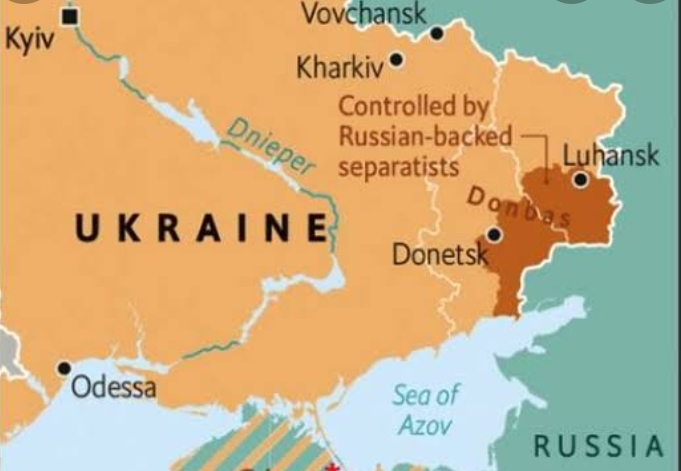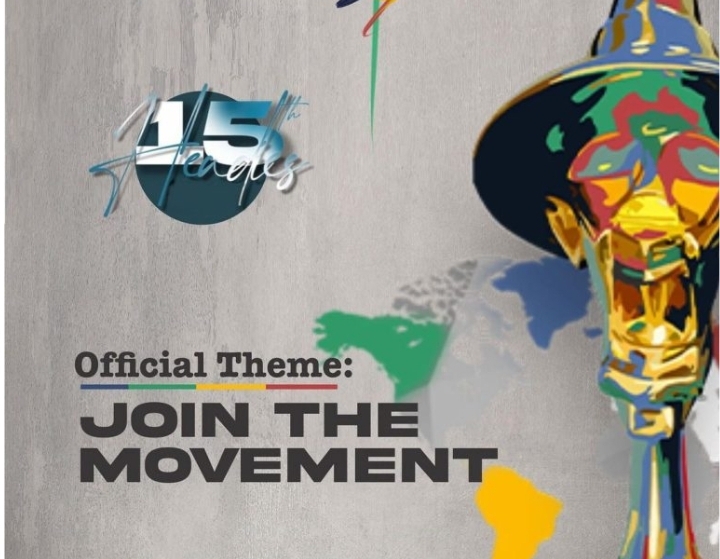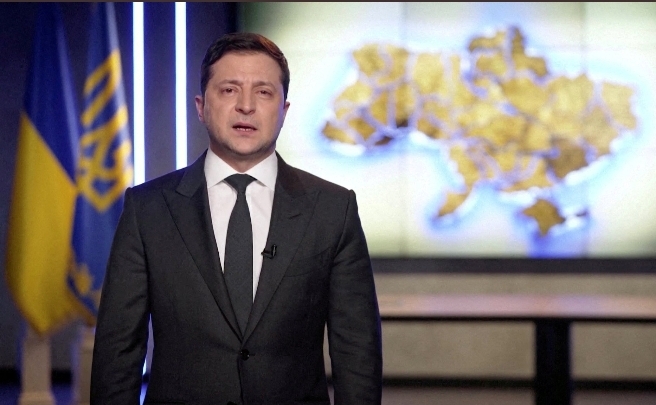Russia vetoed a UN Security Council resolution on Friday that would have demanded Moscow immediately stop its attack on Ukraine and withdraw all troops, a move several Council members said was deplorable, but inevitable.
Although Russia, a permanent member of the Council, refused to support the draft resolution, 11 of the 15-member UN body voted in favour while India, China and the United Arab Emirates abstained from the vote.
Speaking to journalists after the session, Secretary-General António Guterres, stressed that “we must never give up”.
“We must give peace another chance. Soldiers need to return to their barracks. Leaders need to turn to the path of dialogue and peace,” he said.
And despite growing operational challenges, he assured that the UN is scaling up the delivery of life-saving support on both sides of the line of contact.
Against the backdrop of multiplying humanitarian needs, dying civilians and at least 100,000 Ukrainians reportedly fleeing their homes – with many crossing into neighbouring countries, underlining the regional nature of this growing crisis, Guterres announced the appointment of Amin Awad as UN Crisis Coordinator for Ukraine.
A close colleague of Guterres when he was chief of the UN refugee agency, UNHCR, Awad will lead the coordination of all UN efforts, including its humanitarian response, on both sides of the contact line.
“All concerned in this conflict must respect international humanitarian law and guarantee the safety and freedom of movement of UN staff and other humanitarians.
“They must guarantee safety of UN staff and humanitarians, especially in a moment like this, it is important to remember that the UN…is tens of thousands of women and men around the world,” he said.
The top UN official described the work of the organisation, from feeding the hungry, vaccinating children and promoting development to protecting civilians in peacekeeping operations, mediating conflicts and supporting refugees and migrants, all while “standing, delivering, extending a lifeline of hope’’.
He reminded that although the Charter has been challenged in the past, it has “stood firm on the side of peace, security, development, justice, international law and human rights”.
“Time after time, when the international community has rallied together in solidarity, those values have prevailed. They will prevail, independently of what happened today,” the UN chief said.
“We must do everything in our power so that they prevail in Ukraine but they prevail for all humanity,” concluded the Secretary-General.
Introducing the draft resolution, which her country had helped craft, U.S. Amb. Linda Thomas-Greenfield, painted a picture of Russia’s invasion of Ukraine that was “so bold, so brazen,” that it threatens the international system “as we know it”.
We have a solemn responsibility not to look away, she said, stressing that Russia must be held accountable and its forces immediatly, completely and unconditionally withdrawn.
“Today we are taking a principled stand in this Council,” Ms Thomas-Greenfield said. “There is no middle ground,” responsible States do not invade their neighbours.
Indian Ambassador T. S. Tirumurti, who abstained, maintained that “dialogue is the only path forward,” no matter how daunting it might seem, and urged the Council to restore the difficult path forward.
Also abstaining, UAE Ambassador Lana Nusseibeh said that now that the resolution has been vetoed, the United Arab Emirates seeks “inclusive and consultative processes” for a path forward.
Meanwhile, as the only Permanent Council member to abstain, Chinese Ambassador Zhang Jun warned against actions that might “shut the door” to a negotiated settlement.
He reminded that the Ukraine crisis did not occur “overnight” and that the security of one State cannot come at the expense of that of others.
“Ukraine should become a bridge between East and West, not an outpost,” he said, adding that that cold war mentalities must be abandoned to build balanced European mechanisms and all parties should return to diplomacy.
Ukraine Crisis: You cannot veto our voices, U.S. tells Russia
Meanwhile, United States Ambassador to the UN, Ms Linda Thomas-Greenfield, on Friday told her Russian counterpart Amb. Vasily Nebenzya that he could not veto the voices of countries speaking against invasion of Ukraine.
Thomas-Greenfield said this after Russia vetoed a UN Security Council resolution that would have demanded that Moscow immediately stop its attack on Ukraine and withdraw all troops, a move several Council members said was deplorable, but inevitable.
Although Russia, a permanent member of the Council, refused to support the draft resolution, 11 of the 15-member UN body voted in favour while India, China and the United Arab Emirates abstained from the vote.
“You can veto this resolution but you cannot veto our voices; cannot veto the truth; cannot veto our principles; cannot veto the Ukrainian people; cannot veto the UN Charter…and you will not veto accountability,” she said.
The U.S. Ambassador attested that despite a reckless, irresponsible Member State, the United States would continue to stand with Ukraine against Russia’s aggression.
The draft resolution, which her country had helped craft, Thomas-Greenfield painted a picture of Russia’s invasion of Ukraine that was “so bold, so brazen,” that it threatens the international system “as we know it”.
UK Ambassador, Ms Dame Woodward described how women and children in Kiev, pensioners in Odessa and people all over Ukraine are “sheltering from Russia’s onslaught”.
She upheld that the draft resolution sends “a message to the world that the rules we built together must be defended because otherwise, who will be next”.
Moreover, President Vladimir Putin’s “massive invasion” of Ukraine to remove the government is “a naked aggression” that must be condemned, Woodward added.
After the vote, the UK Ambassador pointed out that Russia was the only Council Member to vote against the draft.
“Make no mistake, Russia is isolated, it has no support for the invasion of Ukraine,” she said, noting that history will record what has happened today and that the United Kingdom stands “firmly in support” of the Ukrainian people and will hold Russia accountable.
After voting for the failed resolution, France’s Ambassador, Nicolas de Rivière, said that Russia’s “premediated aggression” is killing civilians and destroying infrastructure with goal of rebuilding the Russian empire.
While other members expressed their commitment to international law, Russia vetoed it.
“Russia is alone,” he observed, adding that “within the UN and in all bodies, France will continue to mobilise with its partners to support Ukraine and the Ukrainian people”.
Russian Ambassador Vasily Nebenzya said that he would not respond to those who have criticised him of abusing his veto power.
Nebenzia, Permanent Representative of the Russian Federation to the United Nations and President of the Security Council for the month of February, chairs the Security Council meeting on the situation in Ukraine.
He accused the draft’s sponsors of “spinning tales” about the true situation in Ukraine, including Western allies’ attempts to cover up the fact that they had been flooding the Donbas with weapons.
“You have made Ukraine a pawn in your own game… this resolution is nothing other than yet another brutal, inhumane move on this Ukrainian chessboard,” he said.
Speaking to the representatives of France, the UK and US, he said that there was no verifiable confirmation about the death of Ukrainian civilians; that photographs of supposed Russian artillery “is fake”; and that reports of attacks on civilian infrastructure were untrue.
Moreover, with its history of aggressions against other countries, the United States was “in no position to moralise”.
Ukraine Ambassador Sergiy Kyslytsya asserted that he would not respond to the “diabolical script” read by the Russian Ambassador, which was in fact “a detailed application for a seat in Hell”.
He recalled that when the Council was discussing the situation in Ukraine earlier in the week, Russia bombed his country and sent forces across the border, including through Belarus.
Therefore, he was not surprised that Russia voted against the text, he said, denouncing the actions of “the Kremlin regime”.
Kyslytsya asked the Ambassadors to remember how many times the Russian Ambassador said his country would not invade or bomb Ukraine.
But after what has happened in recent days, “how can we trust you? You have no idea what is on the mind of your President,” he declared.
The Ukraine Ambassador also noted that according to the rules of procedure, Russia should not have been presiding over a meeting of which his country was the subject.
The Ukraine Ambassador asked the Council to dedicate a moment of silence “for peace… and to pray for the souls of those that have already been or may be killed”, inviting the Russian Ambassador to “pray for salvation”.
This was followed by solemn applause throughout the Chamber.
Noting that nothing could justify the bombing of hospitals and kindergartens –considered war crimes under the Rome Statute – he said that Ukraine was collecting evidence to send forward to the International Criminal Court (ICC).
In addition, Kyslytsya called on nations to break off diplomatic relations with Russia, and international organisations to end their relations with that country.
“You should stop wiping your feet” on the words of the Secretary-General and the work of the UN, and “show respect for the principles enshrined in the Charter,” he said.
The Ambassador maintained that Ukraine remained open to negotiations, but it was Russia that had launched an offensive that sent “thousands of troops” into its territory.








